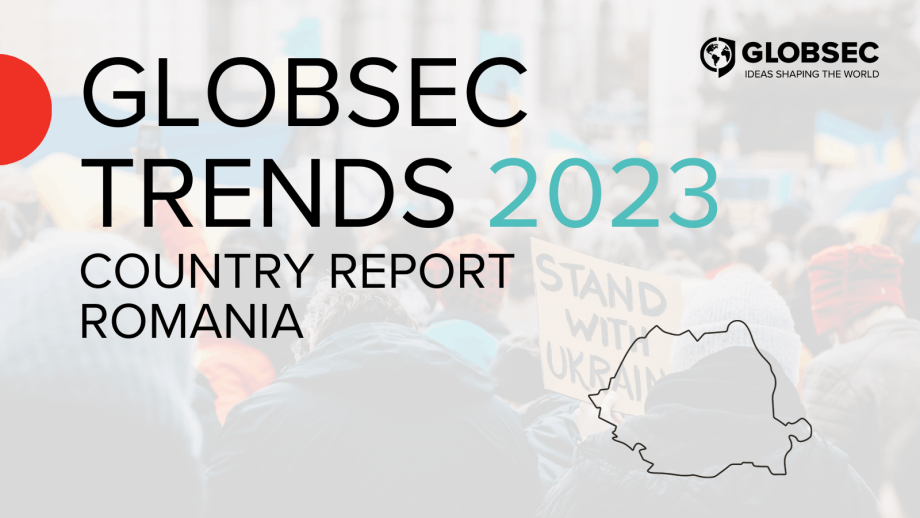GLOBSEC Trends 2023: Romania Should Focus on its Youth

In 2023, GLOBSEC conducted a poll in eight Central and Eastern European (CEE) countries to gauge their opinions on the Western alliance, Russia's invasion of Ukraine, and democratic values. The data revealed that, while public opinion in most countries remains strongly supportive of the West and aiding Ukraine, there are concerning trends emerging in some parts of the region.
The 2023 GLOBSEC Trends polling results indicate that Romanians want to see their country firmly aligned with the West. Respondents from the country are the most likely to express a desire for Romania to maintain its EU membership, with support for NATO membership ranking as the second-highest among the 8 countries surveyed. However, the situation is not without its challenges. Around a third of the population does not place the primary blame for the war in Ukraine on Russia, and there is a significant degree of belief in misleading narratives regarding the conflict. Furthermore, while Romanian respondents demonstrated strong support for Western institutions, their backing for democratic values is notably lower.
The key findings of the report are as follows:
Romanian youth are highly susceptible to pro-Kremlin narratives on certain issues
Romanians aged 18 to 34 show a greater vulnerability to pro-Kremlin narratives regarding NATO and the war in Ukraine compared to those over 55. However, the younger cohort exhibits more resilience to narratives used by the Kremlin to undermine liberal democracies.
Romania's faith in the US is waning
Support for the US as a key strategic partner for Romania has significantly declined between 2022 and 2023. Most of those turning away from the US are now undecided, making them more susceptible to manipulation through misleading narratives.
Confusion exists about the war
While 78% of Romanian respondents believe that weapon deliveries to Ukraine aid the country's defence, 59% express concern that these deliveries provoke Russia and bring Romania closer to war. A significant portion of respondents agree with both statements, indicating that the battle of narratives surrounding the war is far from over in Romania.
Anti-EU narratives find resonance
While Romanian respondents were the most likely among the eight countries surveyed to support EU membership, they were also the most likely to assert that the EU dictates what to do to Romania without the country having the power to influence these decisions.
Lack of support for LGBTI+ rights
Romania is among the least welcoming countries towards sexual minorities in Central and Eastern Europe. The middle-aged (35-54) and older (55+) cohorts, in particular, exhibit reluctance in accepting LGBTI+ people's rights.
Healthcare-related disinformation has a strong hold
Romanian respondents hold firm beliefs in misleading narratives related to healthcare, which have been attributed to a significant decline in support for the EU during the pandemic.
For more detailed information, please refer to the full report below.
